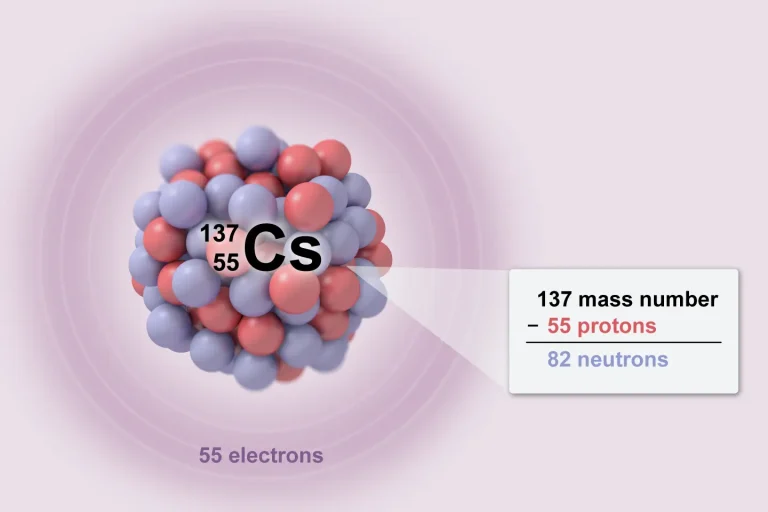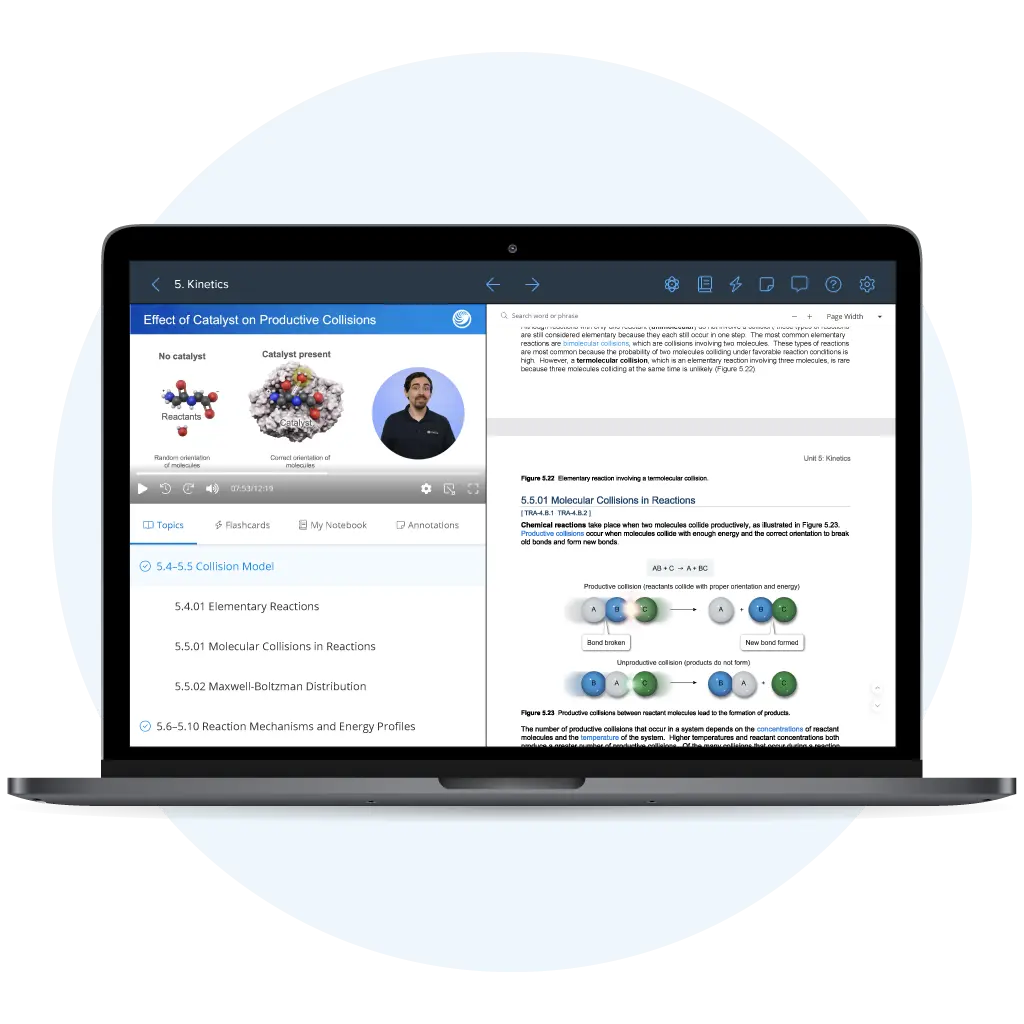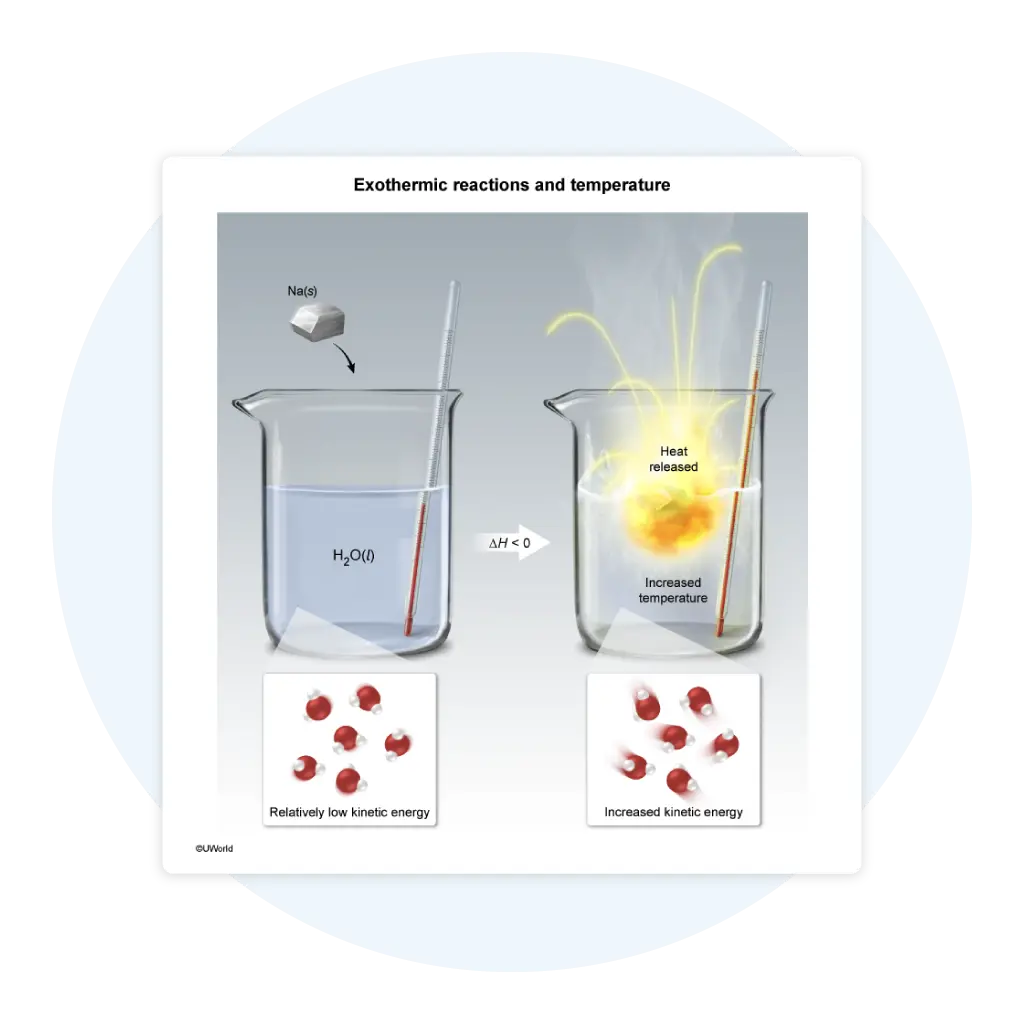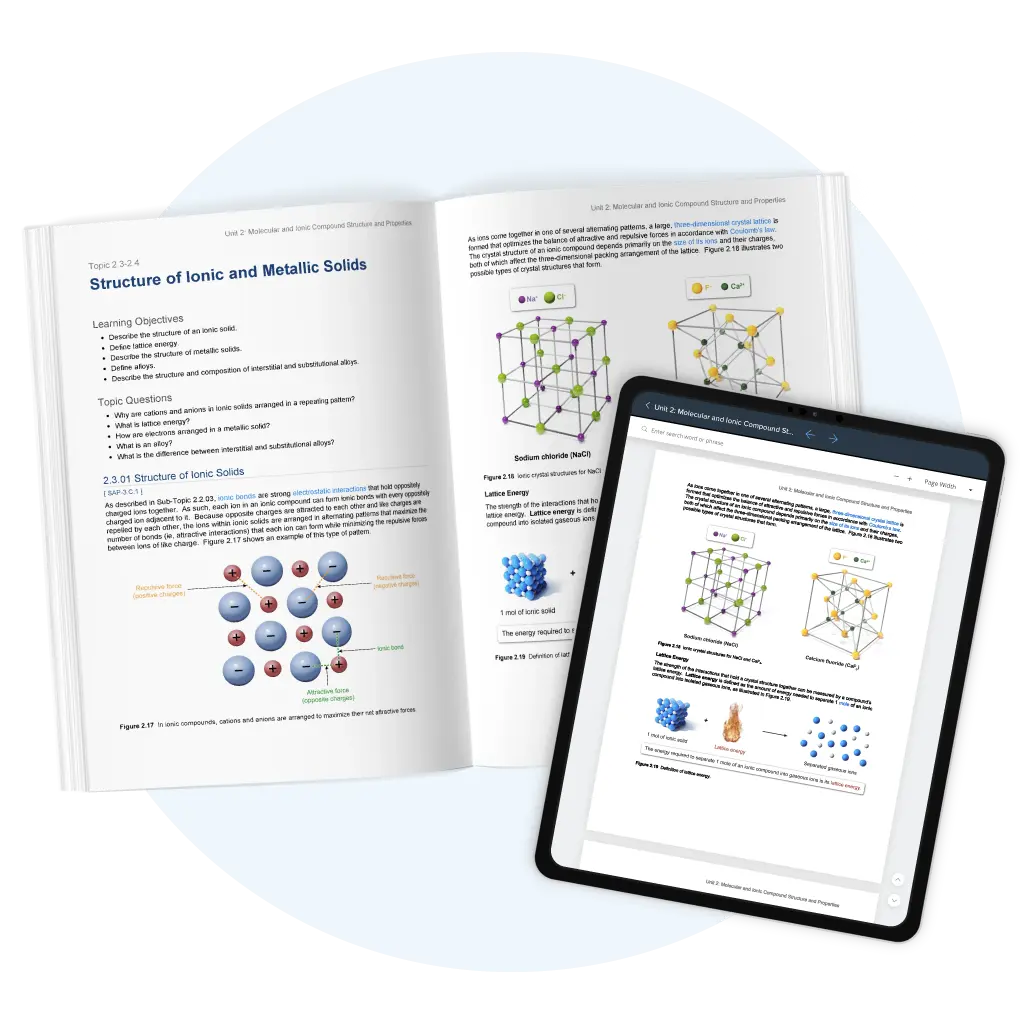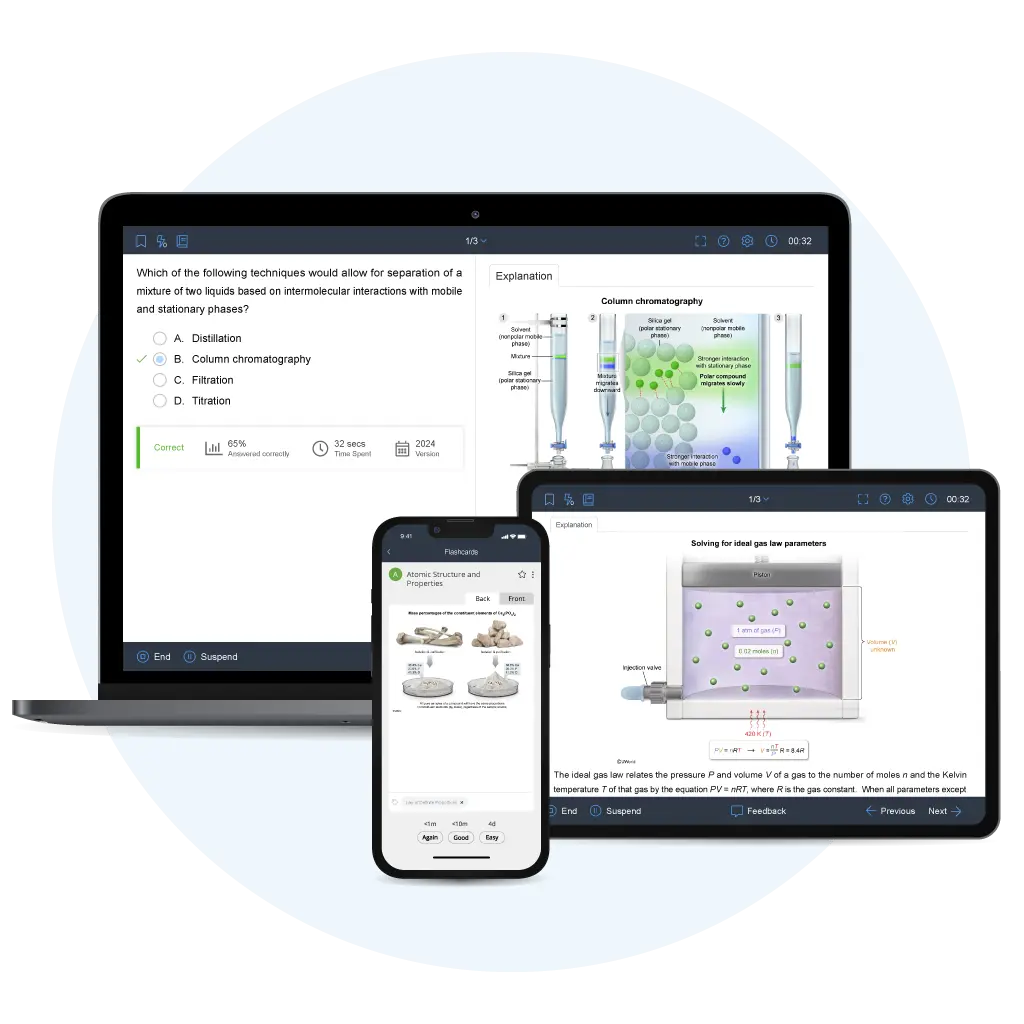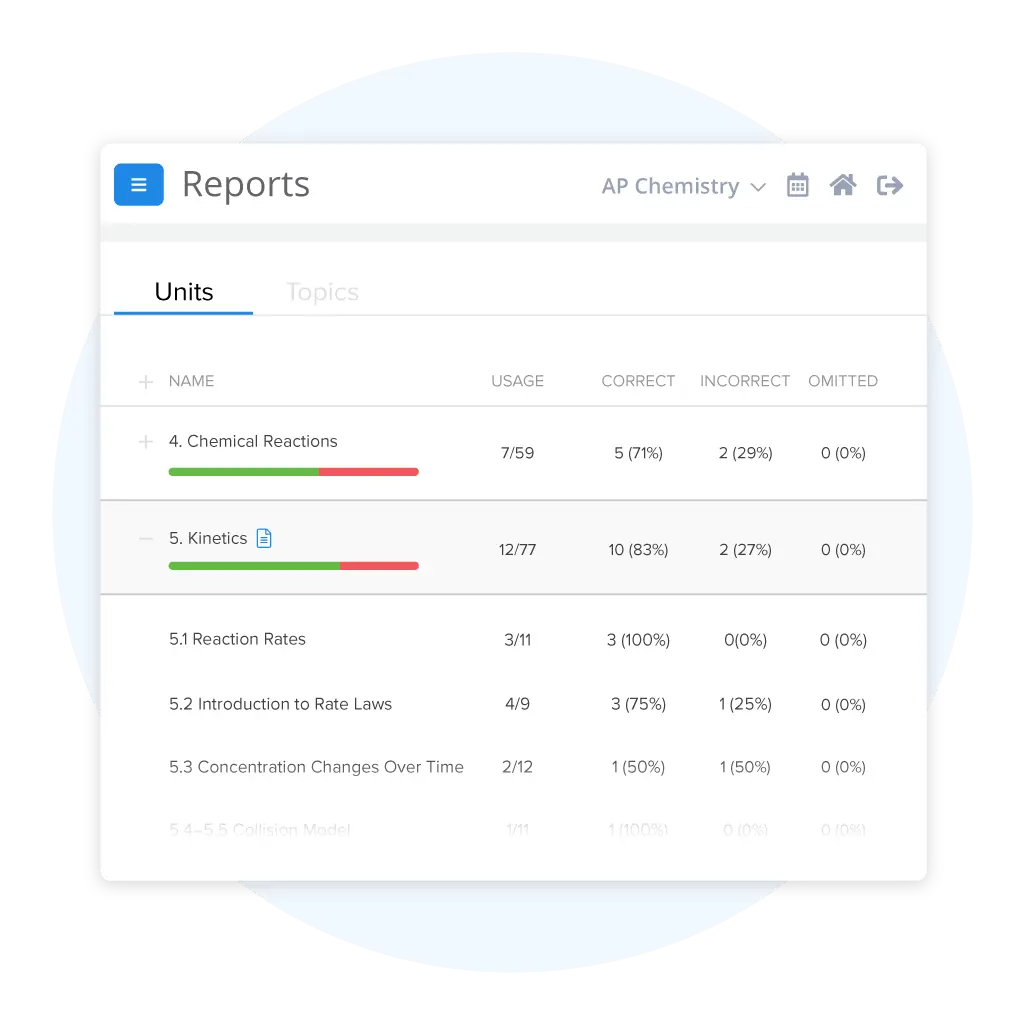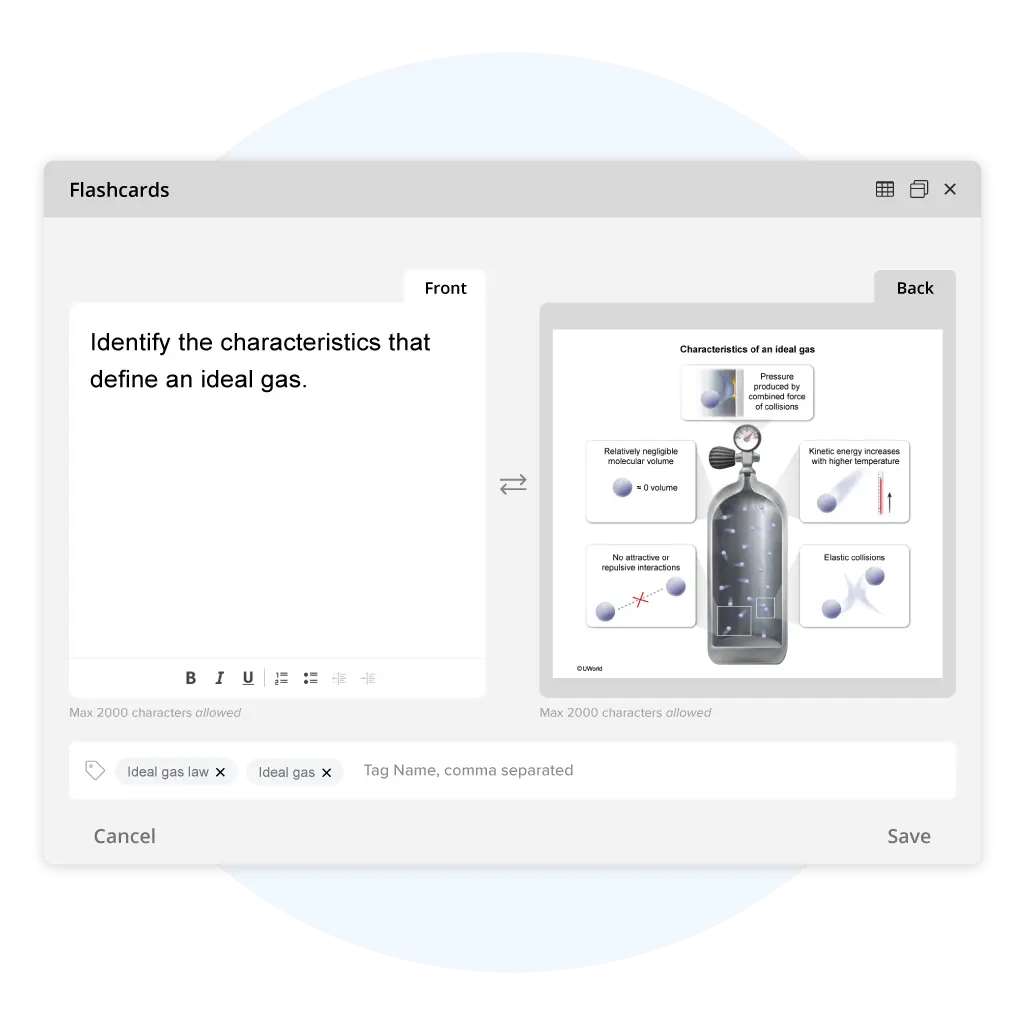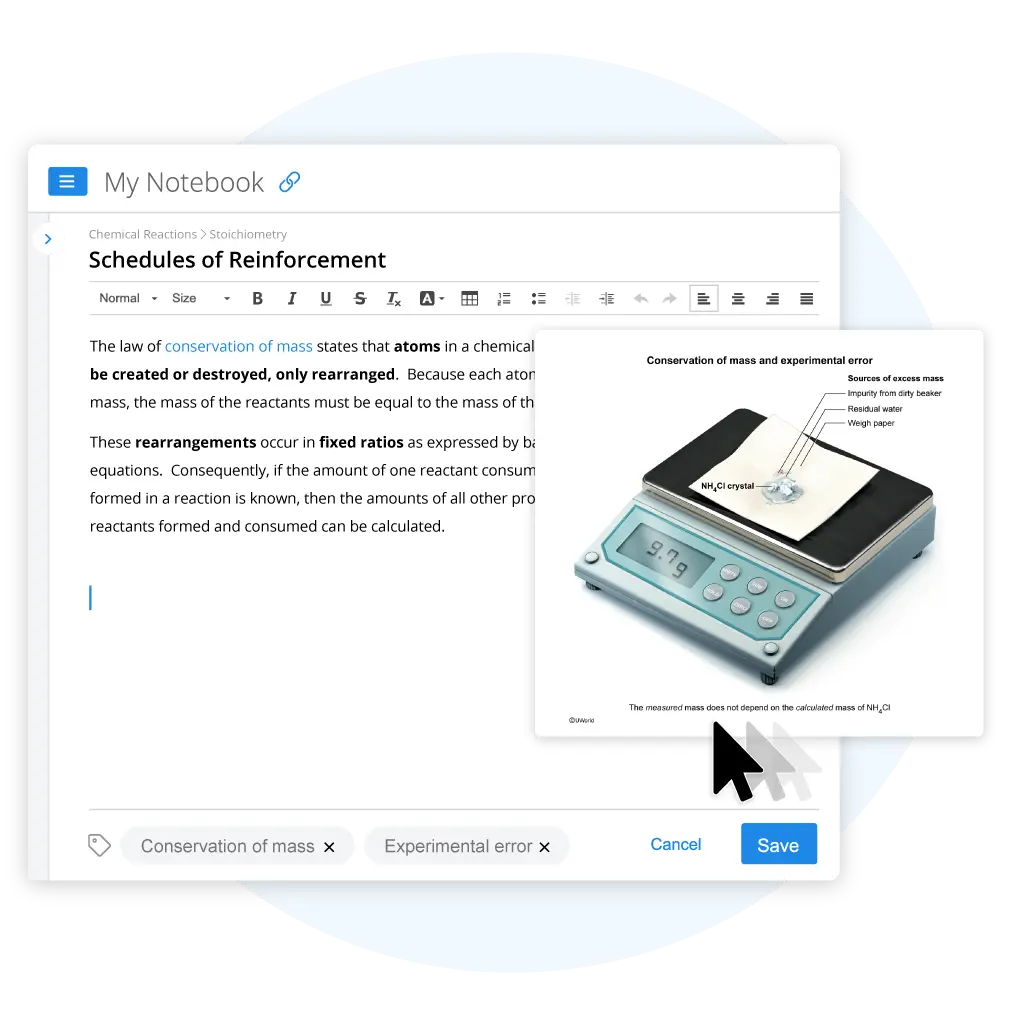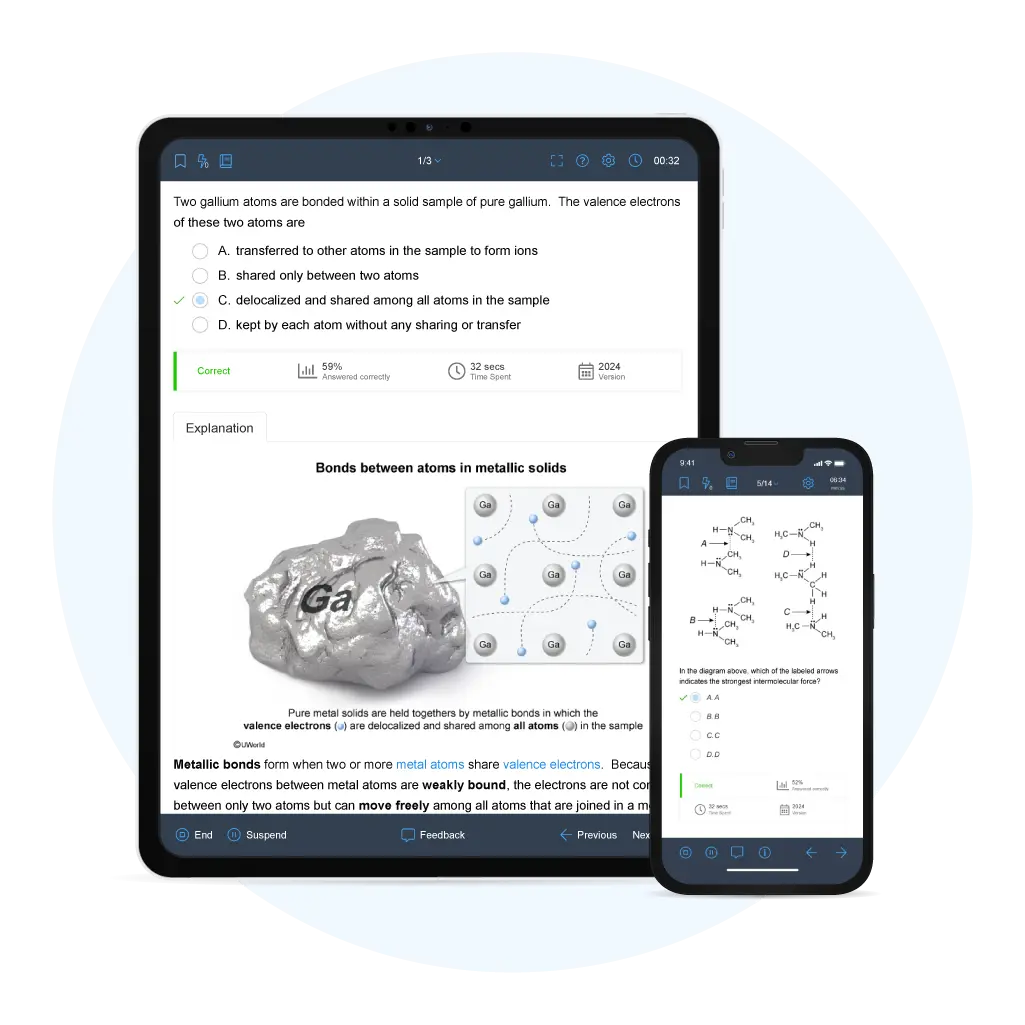Get Familiar, Get Confident: AP Chem Exam Format Explained
Early on in the course, you should familiarize yourself with the AP Chemistry exam format and how it is graded. The current AP Chemistry exam has 60 multiple-choice questions (MCQs) and 7 free-response questions (FRQs). Three FRQs are long, essay-type questions, while the other 4 are short-answer questions. The FRQs require you to analyze and interpret models/representations of chemical properties or concepts, develop experiments to test hypotheses, plot data on graphs, solve problems mathematically, and use scientific reasoning to make a claim or support an idea.
The AP Chemistry exam will undergo a few changes for the 2025 exam and beyond. Students will use the Bluebook app to answer the MCQ questions and read the free-response questions. They will write their answers by hand in paper booklets that will be sent in for scoring. Though the exam content hasn’t changed, some unit and topic titles have been revised for clarity.
The more accustomed you are to the structure of the exam and the types of questions on it, the more at ease you will feel on test day. Check out our articles on AP Chemistry MCQs and AP Chemistry FRQs to understand what different questions on the exam look like and how to approach each one.
Science Practices Simplified: Your Key to AP Chem Success
The AP Chemistry exam tests students' ability to apply different science-related skills and assesses their content knowledge. The College Board® groups these skills into six “science practices”.
The MCQ and FRQ sections of the AP Chemistry exam test these science practices. Therefore, you also want to monitor how well you do with each science practice as well as your progress with each topic. In this way, you can pinpoint which science practices you have mastered and those that you are struggling with.
You can use FRQs from past AP Chemistry exams to practice writing free responses. When grading yourself on practice FRQs you complete, use the scoring rubric from the College Board and be sure to track how you do on both the content and the science practices. Determine which sub-topics and science practices give you the most trouble so that you can work on them some more.
While looking at practice AP Chemistry questions and the corresponding science practice, be sure to watch out for common errors associated with mathematical calculations, reading graphs and tables, interpreting diagrams, and scientific reasoning.
8 Smart Ways to Study for AP Chemistry with UWorld
Preparing for the AP Chemistry exam requires more than classroom learning—you need effective independent study. Here’s how to study for AP Chemistry and make the most of your UWorld course:
Before class, quickly skim through your reading assignment and then watch related video lessons. Focus on anything unclear, and jot down questions to ask your teacher in class.
Make the most of AP Chemistry by staying engaged during class. Pay attention to your teacher’s explanations, ask questions when you're confused, and take clear notes. If a topic still doesn't make sense, flag it for later review.
AP Chemistry labs are important for building scientific reasoning and data analysis skills, so give them extra attention. Use resources like the College Board’s lab manual for more practice. Be active in labs, follow your teacher’s directions, and show your understanding through lab reports, presentations, and tests.
AP Chemistry builds on previous concepts, so it’s key to understand each topic before moving on. For example, you won’t be able to tackle stoichiometry6 (covered in Unit 4) if you don’t fully grasp moles and molar mass (taught in Unit 1). Use our AP Chemistry study guide if you're stuck on any topics after class. It breaks down tough concepts with easy-to-understand lessons and helpful visuals.
Complete practice questions that mirror the format and difficulty of the real AP exam. Each of our questions includes detailed explanations for right and wrong answers, helping you spot trick answers and build critical thinking skills. Visuals are scientifically proven to make it easier to understand and remember key info, so be sure to review each image.
Make sure your AP Chemistry study plan and tools help you track your progress on practice questions for each unit, focusing on both essential knowledge and science skills. AP Chemistry has 9 units, each with 7-13 topics, so staying on top of your understanding for every topic is crucial.
If you're struggling with certain AP Chemistry concepts, creating flashcards on challenging topics can help. An evidence-based strategy, spaced repetition, shows you tough topics more frequently until you master them, then gradually lessens their appearance to boost long-term retention. This method helps you learn faster and remember longer by focusing on the areas where you need the most practice.
Use a virtual notebook like UWorld’s to rewrite and organize your notes daily. Add diagrams, visuals, and mnemonics to help with memory. UWorld's notebook lets you easily add images, reorganize your notes, and even create flashcards—all to help you prep smarter for the exam.
Team up with classmates who are just as motivated to ace the AP Chemistry exam. Keep study sessions focused—don’t let them turn into hangouts. Quiz each other with AP-level practice questions, share flashcards, and take turns explaining tough topics. You can even grade each other’s FRQs and discuss them after. Stay accountable and motivated to reach your goals!
Test Day Hacks: Prep, Pack, and Power Through
You have gone through the AP Chemistry class, studied hard, completed practice questions, quizzed yourself using flashcards, and read through everything in your notebook. Here are some AP Chemistry exam tips to guide you to the next and final step: preparation for test day.
Make a List of Items to Bring on Test Day
Be sure to pack black or dark blue ink pens and a scientific or graphing calculator for the FRQ section. Also, bring something to eat and drink during the break. Dress comfortably and in layers if the room is too hot or cold.
Avoid Last-Minute Studying on the Day Before the Exam
Last-minute cramming before the exam can increase your stress. Instead, focus on getting into the right mindset and pack everything you need to bring. Take a walk or watch something funny to help ease your mind and relax. Go to bed at a reasonable time and turn off all screens and electronics to get a good night’s rest.
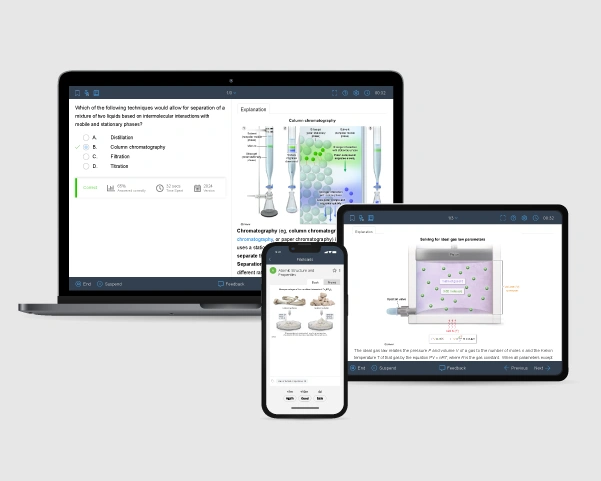
Eat Right and Stay Hydrated on Test Day
Be sure to eat a well-balanced breakfast and drink water on test day to give your brain what it needs to function properly. Foods containing lots of sugar can cause spikes and drops in your blood sugar, which could interfere with your ability to perform at your best when taking the exam. Additionally, stick to your usual amount of caffeine to avoid feeling jittery.
Minimize Anxiety on Test Day
It is totally normal to feel anxious on test day! Here are AP Chemistry exam tips that can decrease these feelings:
- Arriving at the test site early is a good idea so that you have time to check in and use the restroom before the exam. Before leaving for the exam, review your checklist to ensure you bring everything with you.
- Exercises such as deep breathing and picturing positive and peaceful scenarios can help you stay calm if you get nervous.
- Throughout the exam, stay focused on what you are doing and tune out any distractions from others around you.
- Remember that you have prepared well for the exam to boost your confidence.
Now that you’ve learned how to study for AP Chemistry, it's time to practice. Passing the AP Chemistry exam requires dedication and hard work. With the right study materials and an effective study schedule, it is possible to achieve your goal. Prepare with UWorld and take your next steps toward a perfect score. Start your free trial today!
References
- AP Chemistry (About the Course). (n.d.). apstudents.collegeboard.org. Retrieved on October 23, 2024 from https://apstudents.collegeboard.org/courses/ap-chemistry
- AP Chemistry (About the Exam). (n.d.). apstudents.collegeboard.org. Retrieved on October 23, 2024 from https://apstudents.collegeboard.org/courses/ap-chemistry/assessment
- AP® Chemistry Course and Exam Description, Effective Fall 2024. (n.d.). apcentral.collegeboard.org. Retrieved on October 23, 2024 from https://apcentral.collegeboard.org/media/pdf/ap-chemistry-course-and-exam-description.pdf
- AP Chemistry Lab Manual. (n.d.). apcentral.collegeboard.org. Retrieved on October 23, 2024 from https://apcentral.collegeboard.org/courses/ap-chemistry/classroom-resources/lab-manual
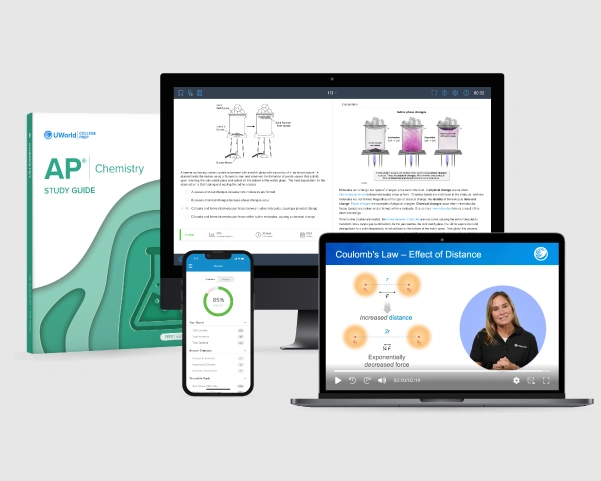
Related Topics
Discover how to master AP Chemistry free-response questions with UWorld. Access sample AP Chem FRQs and expert study tips and strategies to excel in this section!
How to Approach AP Chemistry MCQsAre you finding the AP Chemistry multiple-choice questions challenging? Check out our AP Chemistry guide to master each question type in the multiple-choice section.
AP Chemistry Course and Exam Description (CED)Are you looking for a simple AP Chemistry Course & Exam Description? Check out this quick summary of the AP Chemistry curriculum, skills, units, topics, and key concepts.
About AP Chemistry ExamAre you planning to take the AP Chem course? Read our AP Chem Exam guide, which explains the exam format and breaks it down by question types, duration, and more!
How to Self Study for AP ChemistryAre you planning to self-study for AP Chemistry? Discover tips on mastering concepts, tackling practice problems, and staying organized to excel on the AP Chem exam!
Best AP Chemistry Study Guide ComparisonStruggling to choose the best study guide? Compare Kaplan, Barron's, Princeton Review, and UWorld to find the perfect AP Chemistry study guide for your exam success!
